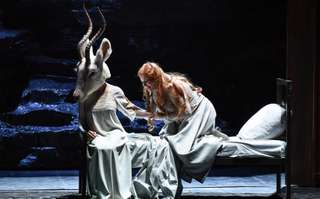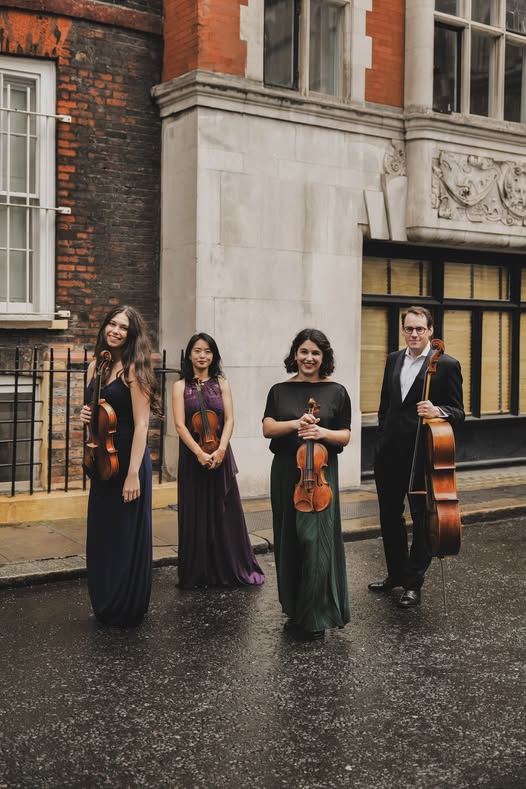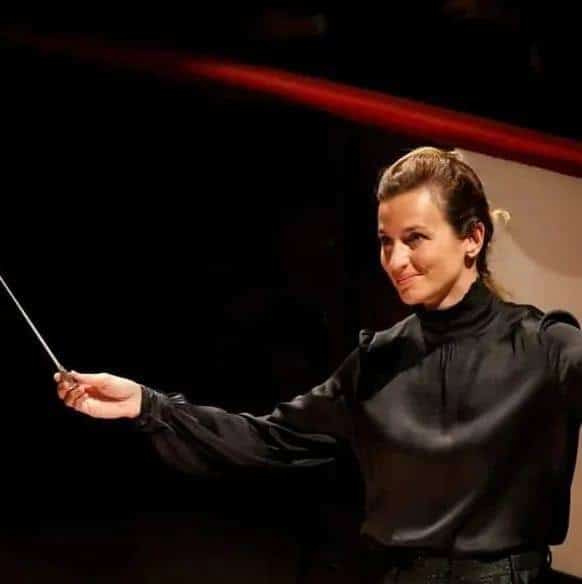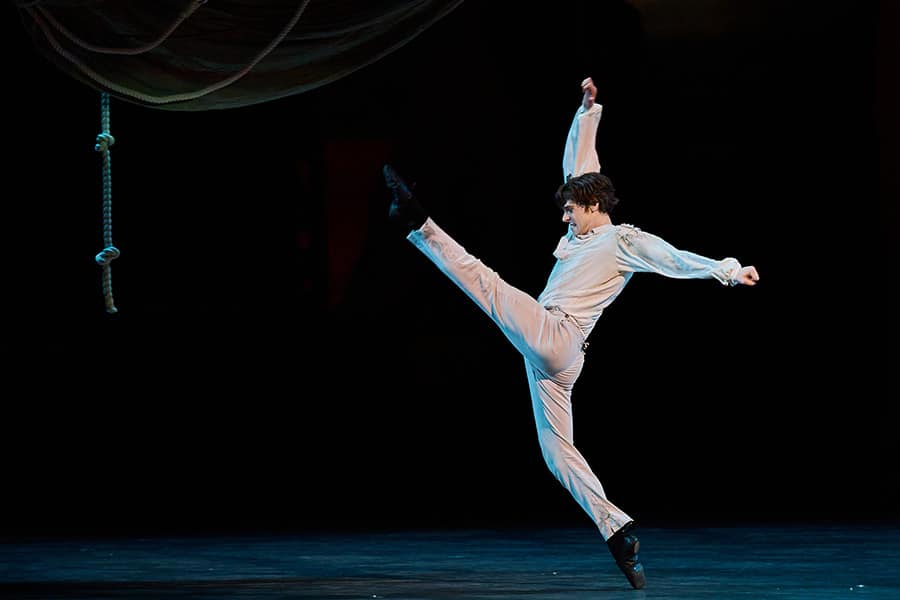San Francisco to stage anti-abortion opera
NewsEvery opera house strives to be timely and relevant when unrolling the next season’s offerings, but SF Opera has landed itself front and centre in the middle of a political row.
Among the new operas is Richard Strauss’s Die Frau ohne Schatten (the shadowless woman), described once by Mark Swed of the LA Times as ‘an incomparably glorious and goofy anti-abortion paean‘ and by another writer as ‘relentlessly polyphiloprogenitive’.
It’s horribly long and not very good, but post-Roe it might acquire an ideological audience.






“Horribly long and not very good”…? You mean the composition itself? It has been loved by generations of opera fans, full houses from Vienna to NY, SF to Berlin. (How was it in London? Pre-covid, that is.) Yes, can be tedious for audiences who don’t speak German if the libretto isn’t studied beforehand, just like Götterdämmerung, Meistersinger or (to pick other languages) Les Troyens or Don Carlos. As for “anti abortion” that is simply another rather silly introduction of current politics into an opera plot that has nothing about abortion in it. Who, in FrOSch, is pregnant? Nobody. It’s a psycho-drama, presented in a fairy tale framework (like Zauberflöte), in which a couple deal with their differences – he wants children, she doesn’t. I am fairly certain you know all this, but am surprised by your comment.
The term “psycho-drama” means nothing. Nominally it is a fairy tale “(Märchenoper),” yes. But it is political. Its message is “pro-life,” as we would say today, or “pro-genitive,” as Norman’s second critic has it, in a time of war (1915) and greater talk and concern about abortion. Often stage-director concepts are most annoying when overlaid onto the known ideas of composer and librettist, but here the approach may be “work-true,” or faithful. But we have to see it first.
Joshua Kosman explains why the metaphors in the opera relate to reactionary views of women’s health care. He also lists example from the media that show that this view of the opera is long-standing.
https://datebook.sfchronicle.com/music/in-a-post-roe-world-an-upcoming-s-f-opera-show-stands-on-the-wrong-side-of-the-debate?fbclid=IwAR0cbN8JMRRiNuTTqP1reANaY1JR8eDDHxPkZETrF1NRlnKN26dN06mcLqk
By the way, would you that an abortion be done unto you (Matthew 7: 12)? Everyone`s heart knows the answer.
Musicians are, because mom did not choose “choice”.
Are you trying to see if you can yank SF’s chain enough to get them to cancel it? 😉
“It’s horribly long and not very good…”. Dear Norman, please! It is a long piece, but for sure it is good and not boring. Why not just say you don’t like it?
why are you reacting to this silly, superficial provocation of this mediocre scribbler?
And it has the best glass harmonica part since Mozart!
I may be wrong, but I imagine Mr. Lebrecht’s knowledge of German might be a possible reason. The deepest appreciation for the musical qualities of works like FrOsch, I have found, require an intimate familiarity with the language. One of the great tragedies in Strauss’ life as an opera composer was the loss of Hofmannsthal, who at age 55 suffered a fatal stroke 2 days after his son’s suicide.
Mark Swed never described Die Frau ohne Schatten as “anti-abortion” anything.
What he wrote was that the opera is “an incomparably glorious and goofy pro-life paean …” (He’s not wrong there: the libretto does rather go on a bit about “the unborn”.)
Someone, presumably a copy editor (I think they’re called sub-editors in the UK), changed Swed’s “pro-life” to “anti-abortion”. He was furious when he learned about the change.
See http://www.laobserved.com/archive/2004/03/lats_antiaborti.php.
(The explanation I think is most likely is that the newspaper probably had a blanket policy at the time, a policy intended for news coverage, that the description “pro-life”, initially developed as a euphemism by anti-abortion campaigners, should always be changed to “anti-abortion.” No statement from the paper ever confirmed that, though, and the paper didn’t even admit, at first, that the phrase “anti-abortion” wasn’t Swed’s, since another policy at the time was that a correction should never state where in the reporting/editing/publication process an error occurred.)
Ah, poor Swed. An editor corrected his propagandistic language. The snake in the grass was spotted.
Pro-life may be a euphemism in politics but it is a straight description of Die Frau ohne Schatten, which you apparently don’t know!
I can sympathize with Mr. Swed. I used to review films for various publications as a sideline and I couldn’t tell you how many times the editorial gremlins altered my copy into gibberish, or worse. The editors at one lone-running periodical, somehow failing to understand a phrase that I thought was simple and straightforward, chose to rewrite it to exactly the opposite of what I meant. To this day, I am more upset about that than when they decided to let me go after more than 20 years.
Calling it “an anti-abortion paean” is ridiculous. Ever hear of the word “symbol”?
True, but “pro-life paean,” which is what Mark Swed actually wrote (see great link under MWnyc above), is not. “Symbol” doesn’t work for action generally. Perhaps “homily” or “manifesto.” But I like paean. Hymn to life, kids, parenting: this is what Frosch is! Unique in the repertory. (Tales of Vixen Sharp-Ears is a paean to nature: re-generation vs. pro-generation.)
Die Frau is an AMAZING opera. Strauss perhaps at his least tuneful but dense and complex. “Anti-abortion?” Somehow I doubt it. Put the Fleet Street away, Norman, or give us the Page 3 girl if you’re going to go that way.
Anyone who believes it is “anti-abortion” should show me exactly where a pregnancy, let alone the threat of terminating one, occurs (in the libretto and score, that is. Who knows what the stage director will dream up…). And equating the current Republican “pro-life” euphemism with the opera’s idea of promoting childbearing (remember this is during WW I) is just simple-minded. – While the fairy tale setting did allow Hofmannsthal to express rather medieval views on woman’s role in the world, that hardly counts as disqualifying an opera from today’s stages. By that argument, Zauberflöte (“Ein Weib tut wenig, plaudert viel” etc.),would surely have to go as well… but maybe that’s in store. Poor audiences…
Look at it this way: at least it’s not Vincent d’Indy’s “La légende de Saint-Christophe”
Frosch is in no way anti-anything except perhaps anti-“Darker Powers.” It is Strauss’s greatest opera.
It is interesting that there are banner ads on SD for the reactionary Hillsdale College. The school goes so far as to rejects federal funding so that it will not have to enforce Title IX regulations. In the banner ads I saw, they advertise a course debunking critical race theory, and a course on the Federalist Papers to stress reactionary interpretations of the constitution.
Strange things going on around here. Hell of a way to make a living…
Apart from the plot, one approach to the music of DIE FRAU is the 20-minute suite from the opera, which has been recorded by such as Ormandy, Leinsdorf and Dorati.
In stage performance, I am always moved by the beauty and dignity of the chorale of the Watchmen at the close of Act One.
Karl Bohm conducted “Die Frau” in S.F. in 1977. I saw in S.F. conducted by Chrisoph von Dohnanyi in the 1980’s or ’90s (I don’t remember quite when). Personal tastes vary, but “Die Frau” is one of my favorite Strauss operas. It has three, fairly equal acts (in length and quality); makes tons and tons of noise, and has a plot/narrative that makes absolutely zero sense – what’s not to love! . . . That’s what opera should be all about.
One of dozens of operas that don’t pass the PC test. Should we ban them all?
It was in the planning stages for 3-5 years for the 22-23 seasons so long before the Supreme Court decision. So nothing to do with abortion and everything to do with Strauss.